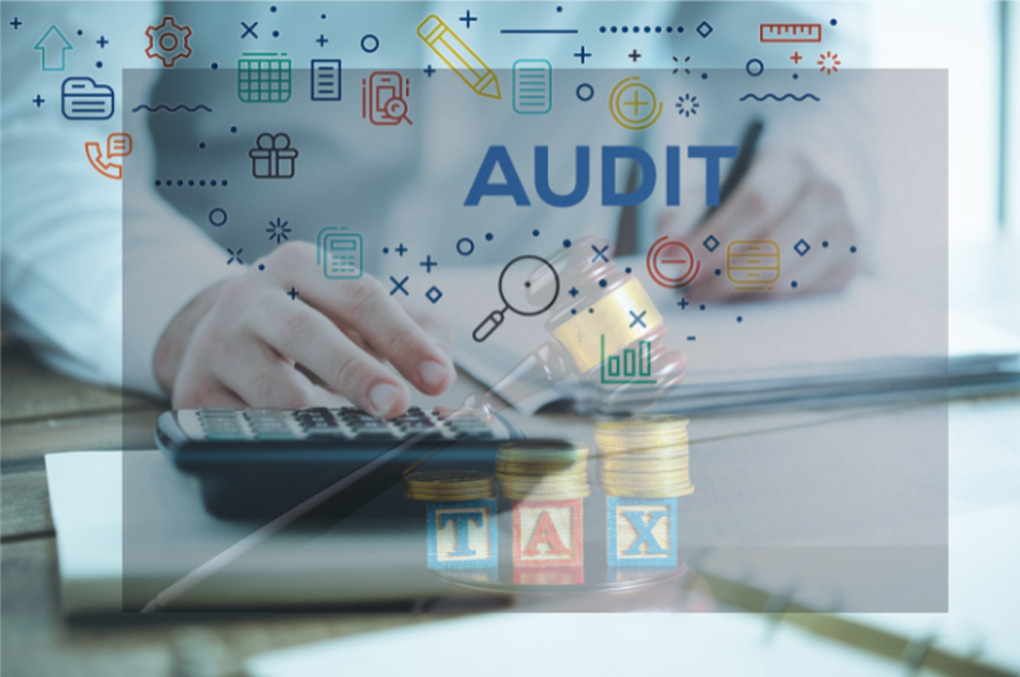October 22, 2024
This post will explain the most common IRS audit triggers and how you can avoid them. If you’ve been honest and kept accurate records, you’ll be well-prepared should the IRS come knocking.

How Often Do IRS Audits Happen?
According to a 2022 report, the IRS audited only 0.38% of tax returns—about 3.8 out of every 1,000. While some audits are conducted randomly, most are triggered by the IRS’s computer system, which flags unusual patterns or questionable data on tax returns. Audits can also happen if your tax preparer is under review, or if you’re connected to a business partner or investor who is being audited.
Before diving into the triggers, it’s important to note the different types of IRS audits:
- Mail audits: The most common, these are inquiries about discrepancies, such as missing income or misreported deductions.
- Office/Field audits: These are more serious. The IRS may request an in-person meeting or visit your business to review your financials. These audits often happen if there’s suspicion of major issues, like tax evasion.
Common IRS Audit Triggers
1. Unreported Income
The IRS receives copies of your tax forms (W-2s, 1099s, etc.), so if you fail to report all of your income, it’s a major red flag. Whether it’s freelance work, side gigs, or tips, you need to report every source of income, even if it wasn’t formally documented.
2. Excessive Business Expenses
Businesses are expected to make a profit, and high expenses with little income can raise suspicion. For instance, a small business reporting $1,000 in sales but $20,000 in travel expenses is likely to be audited. If your business hasn’t turned a profit in three of the past five years, the IRS may classify it as a hobby, restricting how much you can deduct.
3. Home Office Deductions
Claiming a home office deduction is a common trigger, especially since many people mistakenly assume they qualify. The deduction is only for self-employed individuals who use a portion of their home exclusively for business. Employees who worked from home due to the pandemic generally do not qualify.
4. Charitable Donations
Making large charitable donations can look suspicious if they seem disproportionately high for your income. To claim deductions, ensure the charity is a registered 501(c)(3), and always get receipts for cash and non-cash donations. Keep records like receipts and appraisals, and file Form 8283 for non-cash donations over $500.
5. Cash-Based Businesses
Businesses that rely heavily on cash, like salons and restaurants, tend to get more scrutiny since it’s easier to underreport income. The IRS may also suspect illegal activities, like money laundering. If your business receives cash payments over $10,000, you must file Form 8300.
6. Digital Assets and Cryptocurrency
IRS tracking of digital assets like Bitcoin is still in its early stages, making this a common audit trigger. You need to report all gains and losses from cryptocurrency transactions on your tax return. Use Form 8949 to document sales and other dispositions of digital assets.
7. Foreign Financial Accounts
Failing to report foreign bank accounts or other foreign financial assets can lead to both civil penalties and criminal charges. The IRS requires you to report foreign accounts if their total value exceeds $10,000 at any point during the tax year. You must also report foreign assets over $50,000.
8. Earned Income Tax Credit (EITC)
Low-income taxpayers who claim the EITC are often flagged for audits because the credit is frequently abused. If your income qualifies, be sure to report all dependents correctly, as only one taxpayer can claim each dependent.
9. Being a Black Taxpayer
A Stanford University study revealed that Black taxpayers are audited at a rate three times higher than non-Black taxpayers, raising concerns about racial bias in the IRS audit system. This is particularly alarming for low-income Black taxpayers who are more likely to claim credits like the EITC.
How to Avoid an IRS Audit
- Report All Income: Be sure to include all sources of income, no matter how small or informal.
- Maintain Detailed Documentation: Keep receipts for all business expenses, charitable donations, and any other deductions. Make notes on travel expenses and business meals, as these are common audit triggers.
- Don’t File Too Early: Wait until you receive all your tax forms before filing. Filing early increases the risk of missing important documents, which could lead to underreporting income.
- Be Honest: Don’t try to “push the envelope” with deductions. Every deduction must be supported by documentation, so don’t claim expenses you can’t prove.
- Get Professional Help: If you’re selected for an audit, consider hiring a CPA or tax professional to guide you through the process. Having a professional on your side is like having a lawyer in court—it can make a significant difference.
Final Thoughts
Understanding common IRS audit triggers can help you avoid mistakes and ensure your tax return doesn’t raise any red flags. While audits are rare, being prepared with accurate records will give you peace of mind if the IRS does come calling. If you ever find yourself facing an audit, don’t panic—get professional help, and remember that with the right documentation, you can successfully navigate the process.
Do you have questions about your taxes and avoiding an audit? Consult with the experts at ECG Tax Pros today for a Free Consultation.




